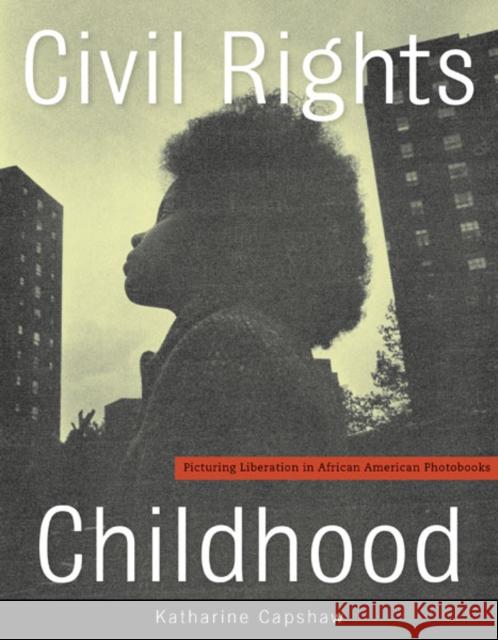Civil Rights Childhood: Picturing Liberation in African American Photobooks » książka
Civil Rights Childhood: Picturing Liberation in African American Photobooks
ISBN-13: 9780816694044 / Angielski / Twarda / 2014 / 384 str.
Civil Rights Childhood: Picturing Liberation in African American Photobooks
ISBN-13: 9780816694044 / Angielski / Twarda / 2014 / 384 str.
(netto: 349,84 VAT: 5%)
Najniższa cena z 30 dni: 362,09
ok. 30 dni roboczych.
Darmowa dostawa!
Childhood joy, pleasure, and creativity are not often associated with the civil rights movement. Their ties to the movement may have faded from historical memory, but these qualities received considerable photographic attention in that tumultuous era. Katharine Capshaw's Civil Rights Childhood reveals how the black child has been--and continues to be--a social agent that demands change.
Because children carry a compelling aura of human value and potential, images of African American children in the wake of Brown v. Board of Education had a powerful effect on the fight for civil rights. In the iconography of Emmett Till and the girls murdered in the 1963 Birmingham church bombings, Capshaw explores the function of children's photographic books and the image of the black child in social justice campaigns for school integration and the civil rights movement. Drawing on works ranging from documentary photography, coffee-table and art books, and popular historical narratives and photographic picture books for the very young, Civil Rights Childhood sheds new light on images of the child and family that portrayed liberatory models of blackness, but it also considers the role photographs played in the desire for consensus and closure with the rise of multiculturalism.
Offering rich analysis, Capshaw recovers many obscure texts and photographs while at the same time placing major names like Langston Hughes, June Jordan, and Toni Morrison in dialogue with lesser-known writers. An important addition to thinking about representation and politics, Civil Rights Childhood ultimately shows how the photobook--and the aspirations of childhood itself--encourage cultural transformation.











